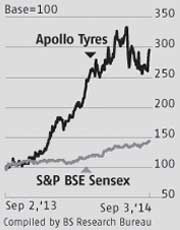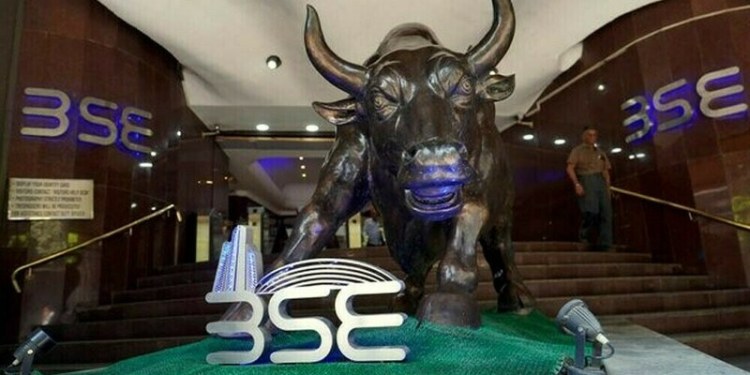Through the past few trading sessions, the Apollo Tyres stock has risen on expectations of further softening in rubber prices. While domestic prices of natural rubber have fallen to a five-year low, global prices have declined 25 per cent through the past year. Rubber prices are expected to remain soft due to oversupply and concern on demand from China, the world’s largest consumer.
Lower rubber prices are the key trigger for tyre makers such as Apollo Tyres, as these costs account for about 60 per cent of these companies’ overall expenditure. Lower raw material costs have helped Apollo Tyres improve its earnings before interest, taxes, depreciation and amortisation (Ebitda) margins, with the June quarter consolidated Ebitda margin at 13.2 per cent, up 100 basis points year-on-year.
And, for domestic operations, which account for 70 per cent of consolidated revenue, the margins should improve further, as the full impact of lower raw materials costs wasn’t reflected in higher profitability due to the existing inventory. Analysts estimate the margin at 14 per cent through the next couple of years, owing to higher utilisation and lower raw material prices.
Revenue is likely to show steady growth of about eight per cent, as original equipment manufacturers (both commercial and passenger vehicles) are expected to record a recovery in the second half of FY15. The replacement segment is estimated to grow six per cent.

The Street will track the fortunes ofcommercial vehicle (CV) companies, as these account for about 60 per cent of Apollo’s revenue. Analysts expect a recovery in the CV segment, led by trucks and buses.
In the near term, the only concern will be that related to the margins of its European operations. Due to intensifying competition, the company had to announce a five per cent cut in prices, which led to a 130-basis-point decline in margin (16 per cent).
The company plans to expand capacity in India and its Vredestein facility in the Netherlands at a total cost of Rs 6,000 crore through the next three-five years. Apollo is likely to fund its expansion, as the net debt-to-equity ratio is just 0.2 and it has generated about Rs 1,500 crore of cash from operations in FY14. Analysts say expansion of the European facilities augurs well, as increased revenue from a high-margin geography should improve consolidated profitability.
Given the recent run-up in the stock and the potential upside of 10 per cent based on analysts’ consensus target price, investors might consider it on dips.
– Business Standard



























